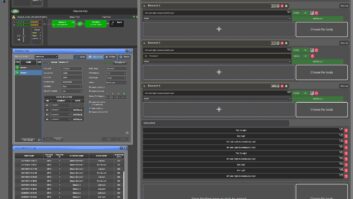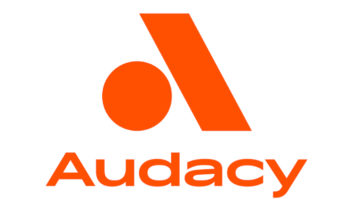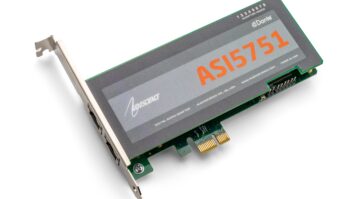J. Fred Riley wrote to Radio World recently with a critical view about the AMC algorithm used in some modulation-dependent carrier control technologies.
Here, Geoff Mendenhall of Harris Corp. expands on Riley’s comments.
Referring to the recent letter to the editor from J. Fred Riley, I would like to make a couple of additional comments about MDCL deployment.
Fred’s point about the “top down,” AMC algorithm reducing the total peak envelope power (PEP) is correct. The carrier is reduced by 3 dB during modulation peaks which does reduce the total PEP of the transmitter, but the full carrier power is restored during lapses in audio, thereby masking the impact on fringe area S/N. This perceptual masking effect on the audio S/N would not be the same if the transmitter power output was simply reduced by 3dB with conventional AM modulation. Fringe area listening tests documented by several different broadcasters confirm that there is a negligible impact on received audio S/N or coverage when using the AMC –3 dB algorithm.
AMC seems to have the least impact on simultaneous IBOC, HD Radio operation possibly because the AMC algorithm causes less variation in the total integrated power output of the transmitter than the “bottom up” algorithms like ACC or DCC. Less variation in total received power will have less impact on the receiver’s AGC/AVC circuit trying to follow the variations in transmitted carrier level. More tests with different receivers are needed to confirm this.
The December 1988 BBC Engineering Report “Implementation of Amplitude Modulation Companding in the BBC MF National Networks” (BBD RD 1988/15) provides a very complete analysis of AMC vs. a fixed reduction of carrier power and the relative impact on coverage.
Fred is also correct in pointing out that AMC gives the greatest power consumption reduction with heavily processed audio that maintains high average AM modulation levels. I have seen up to 37% power savings with AMC vs. up to 21% with ACC using the same transmitter, audio processing and audio content. If a broadcaster is not operating with HD Radio and wants to maintain the full PEP of the transmitter, the option to use ACC or DCC is available from practically all of the transmitter manufacturers.
Use of any of the MDCL algorithms gives the broadcaster the opportunity to significantly reduce the AM transmitter power consumption without having to accept any significant impact on coverage or audio quality.
The bottom line is that the broadcaster will need to experiment with several different algorithms to determine which one gives the best trade-off in audio quality and coverage for that particular station’s operating mode and audio program content.
Geoff Mendenhall, P.E.
VP Transmission Research and Technology
W8GNM
Harris Broadcast Communications
Mason, Ohio












